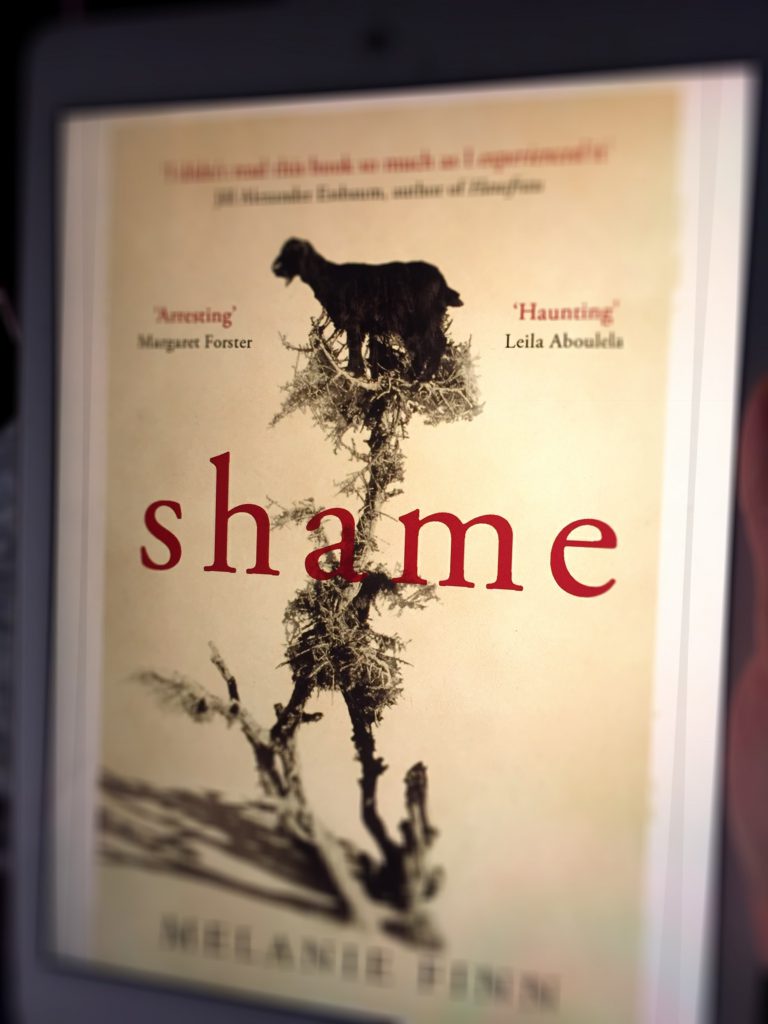What do children dying, divorce, abandonment, Africa and vengence all have in common? They are all intertwined in the pages of Shame.
The story begins in the past. Last summer, Pilgrim Jones was an American expat who was traveling through Geneva with her husband, Tom. Things were going dreamily, until she notices a very tiny detail. With the flutter of another woman’s hands and her laughter at something Pilgrim’s husband said, begins the spiral of terrible events, that eventually brings Pilgrim to Africa.
Throughout the course of the book, her past is catching up to her present. In her present, Pilgrim is in Magulu, Tanzania. She is on a Safari, and decides that she wants to stay in Magulu. Right away, we are given hints that something tragic happened to some children in Pilgrim’s life.
Her past takes her to Arnau, of the month before. Tom had left her, and she can’t find the motivation to pay the phone bill. After all, nobody calls her now that he was gone. He and his new partner, Elise, the same woman with the fluttering hands from the previous summer, were now together and he had gotten her pregnant while still with Pilgrim. The biggest blow to her was that Tom lied about buying land in Arnau. With her life in question, she was driving down the road when the accident happened.
Fast forward to her trying to escape her past in Africa. There are so many reasons why she would have wanted to lose herself in the Serengeti. Not only had she been cheated on and abandoned, but she also had killed 3 innocent children with her car. One of the children who died had also lost her mother previously, leaving a grieving father completely alone. The pain that the families felt from the death, as well as the community was only internalized by Pilgrim. What people saw in the exterior was a cool, collected individual, but she was breaking inside. She had no support system and no place to call home. She was displaced. A pilgrim, of sorts.
Without spoiling too much of the story, this book was incredible. It was a collection of painful, uncomfortable moments, and the way Pilgrim dealt with them. It didn’t have a satisfying ending but I think that’s what made the story interesting. Her past was constantly catching up to her, and while I don’t think she was running from her past, she could not forgive herself, nonetheless. In a sense, it was almost like she felt that she deserved her past, and the castigation her community had imposed upon her. The themes were fairly mature and dark, but the characters were so complex, just like Africa itself. The author lived in Africa for quite some time, and her raw intimacy with the land and the people can be felt throughout the book. I would give this a 5 out of 5!





No Comments